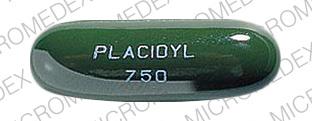Ethchlorvynol Interactions
There are 215 drugs known to interact with ethchlorvynol, along with 8 disease interactions, and 1 alcohol/food interaction. Of the total drug interactions, 27 are major, 186 are moderate, and 2 are minor.
- View all 215 medications that may interact with ethchlorvynol
- View ethchlorvynol alcohol/food interactions (1)
- View ethchlorvynol disease interactions (8)
Most frequently checked interactions
View interaction reports for ethchlorvynol and the medicines listed below.
- Advair HFA (fluticasone / salmeterol)
- Advil Dual Action (acetaminophen / ibuprofen)
- Alcohol (contained in alcoholic beverages) (ethanol)
- Aleve (naproxen)
- Allegra Allergy (fexofenadine)
- Ambien (zolpidem)
- Asacol (mesalamine)
- Aspirin Low Strength (aspirin)
- Bariatric Multivitamins with 45 mg Iron (multivitamin with minerals)
- BayGam (immune globulin intramuscular)
- Belsomra (suvorexant)
- Benadryl (diphenhydramine)
- Breo Ellipta (fluticasone / vilanterol)
- Calcium 600 D (calcium / vitamin d)
- Coreg (carvedilol)
- Coricidin HBP Chest Congestion & Cough (dextromethorphan / guaifenesin)
- Crestor (rosuvastatin)
- Cymbalta (duloxetine)
- Dexilant (dexlansoprazole)
- Digestive Advantage Daily Probiotic (bacillus coagulans / calcium carbonate)
- Doculase (docusate)
- Elavil (amitriptyline)
- Eliquis (apixaban)
- Flexeril (cyclobenzaprine)
- Flomax (tamsulosin)
- Mucinex (guaifenesin)
- Tylenol Arthritis Pain (acetaminophen)
- Vitamin C (ascorbic acid)
- Vitamin D3 (cholecalciferol)
- Zinc (zinc sulfate)
Ethchlorvynol alcohol/food interactions
There is 1 alcohol/food interaction with ethchlorvynol.
Ethchlorvynol disease interactions
There are 8 disease interactions with ethchlorvynol which include:
- alcohol intox
- depression
- drug dependence
- porphyria
- renal/liver disease
- glaucoma
- liver disease
- resp depression
More about ethchlorvynol
- ethchlorvynol consumer information
- Compare alternatives
- Reviews (5)
- Drug class: miscellaneous anxiolytics, sedatives and hypnotics
Related treatment guides
Drug Interaction Classification
| Highly clinically significant. Avoid combinations; the risk of the interaction outweighs the benefit. | |
| Moderately clinically significant. Usually avoid combinations; use it only under special circumstances. | |
| Minimally clinically significant. Minimize risk; assess risk and consider an alternative drug, take steps to circumvent the interaction risk and/or institute a monitoring plan. | |
| No interaction information available. |
See also:
Further information
Always consult your healthcare provider to ensure the information displayed on this page applies to your personal circumstances.


